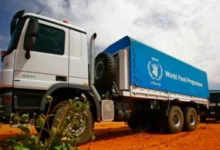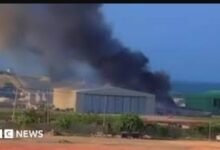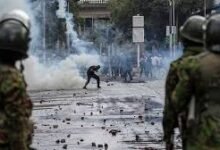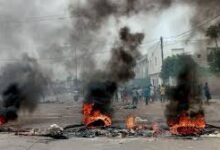Army deployed to deal with South Africa gangs

Authorities in South Africa have deployed the army to townships in the port city of Cape Town to deal with an upsurge of gang violence.
Police Minister Bheki Cele said the soldiers will work alongside the police in an operation to recover illegal firearms and drugs.
At least 13 people were killed in 24 hours last weekend in one of the violence-hit parts of the city.
Cape Town’s gang problem goes back many decades.
Local reports say the recent upsurge in violence is due to a turf war between rival gangs, fuelled by retaliation attacks.
There is a heavy police presence in Bonteheuwel, Delft, Hanover Park and Philippi East townships, reports say.
Mr Cele said the deployment was part of “extraordinary” measures that needed to be taken to ensure public safety.
“We’ll go door to door, we’ll collect every illegal firearm, we’ll collect all criminals that we want, we’ll collect all outstanding criminals that have been on bail and that is happening from two o’clock this [Friday] morning,” Mr Cele told the media.
The operation was meant to “stamp the authority of the state”, the minister said.
He defended the deployment, saying the soldiers – who would be “led and commanded” by the police – had also been used to provide security during the May elections.
The army’s current deployment is for three months and can be renewed.
“After that, there needs to be sustainability,” he said, news site News24 reports.
The army was last deployed to tackle Cape Town’s gangs in 2017.
Cape Town’s gang problem is a symptom of an unequal society, where the gap – between those with access to resources and a dignified quality of life and those without – continues to widen.
Far from the opulent suburbs and bustling tourist attractions of the “Mother City”, in low-income neighbourhoods such as the Cape Flats, hundreds of thousands are unemployed and poor.
These are run-down communities that seem to have been forgotten.
For many unemployed young people, the gangs offer an alternative life, however grim, but more importantly access to money.
There are mixed feelings about the presence of the military there – for community members who feel helpless the move has been welcomed.
But some have raised concerns about having a militarised response to what is effectively an economic problem. –BBC





